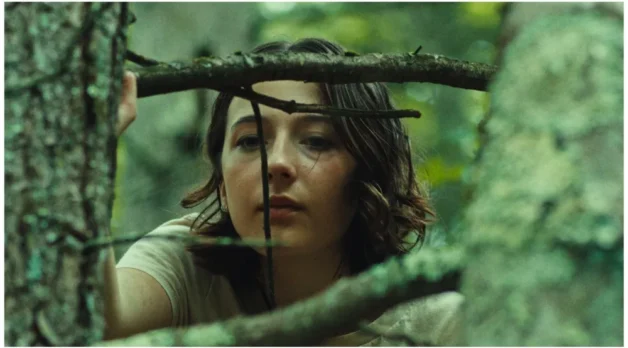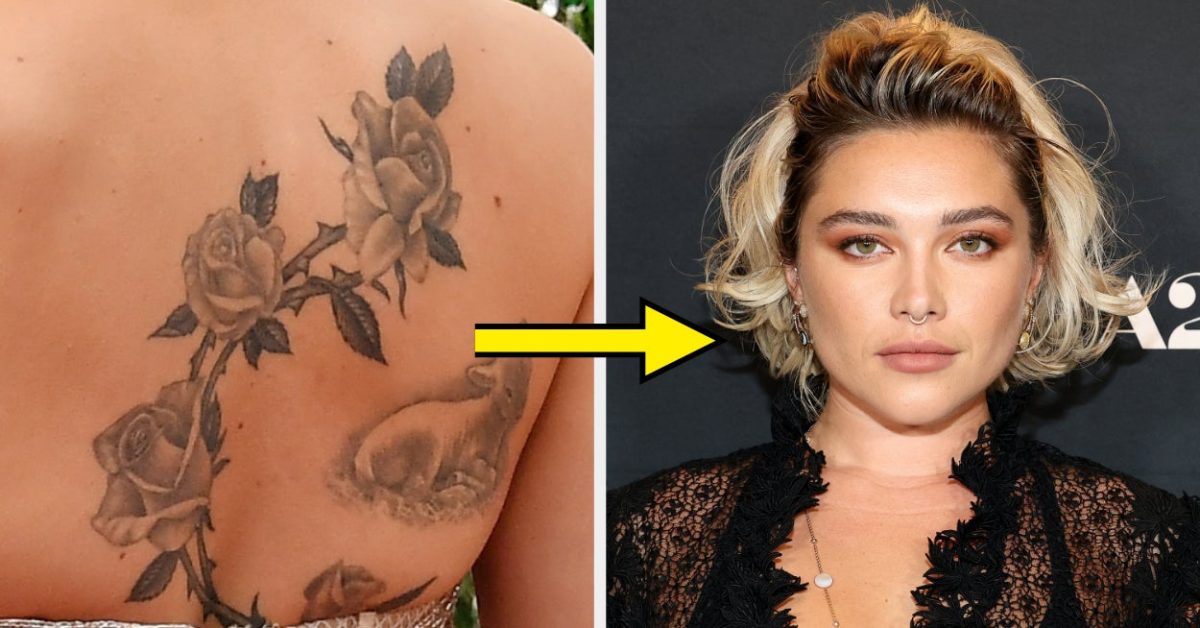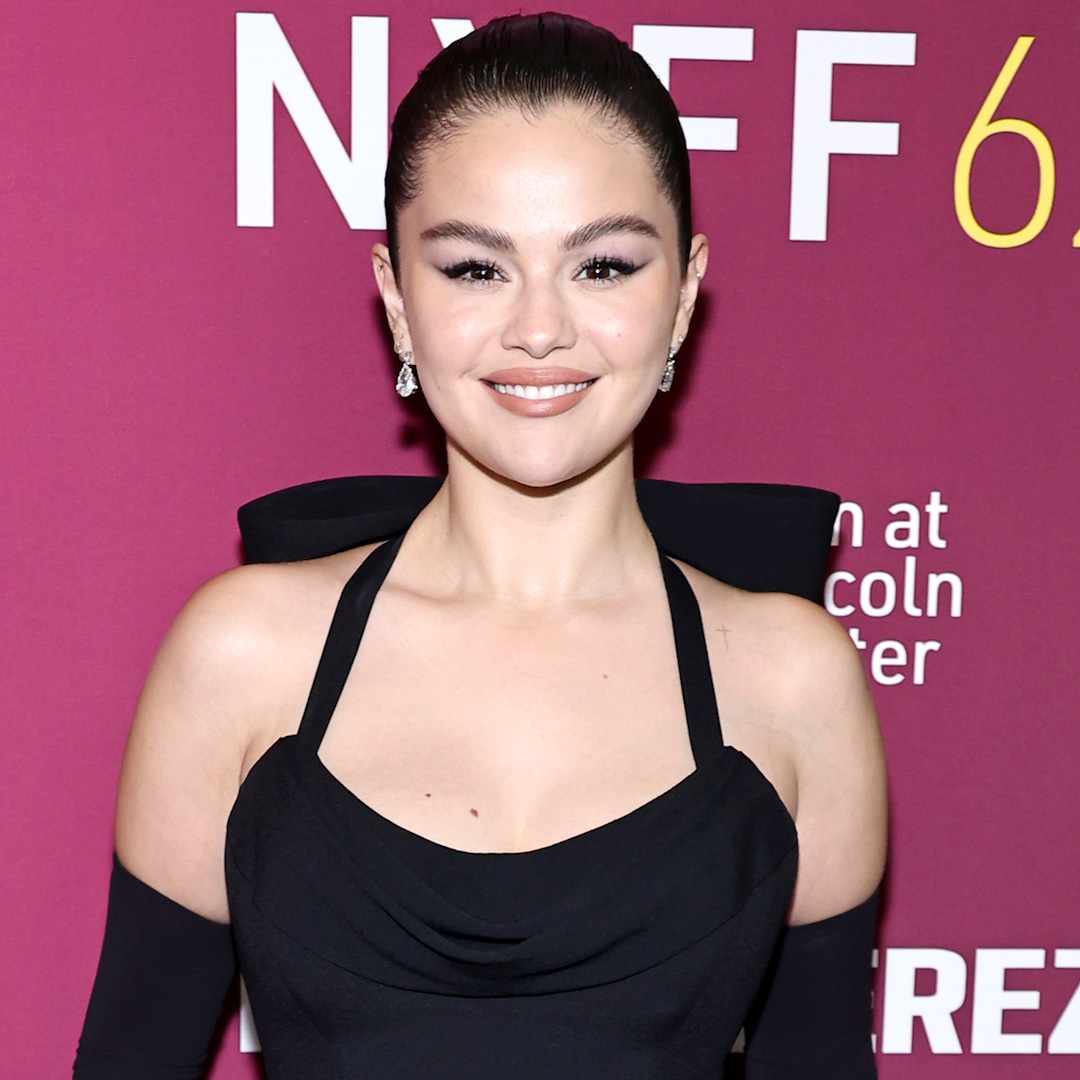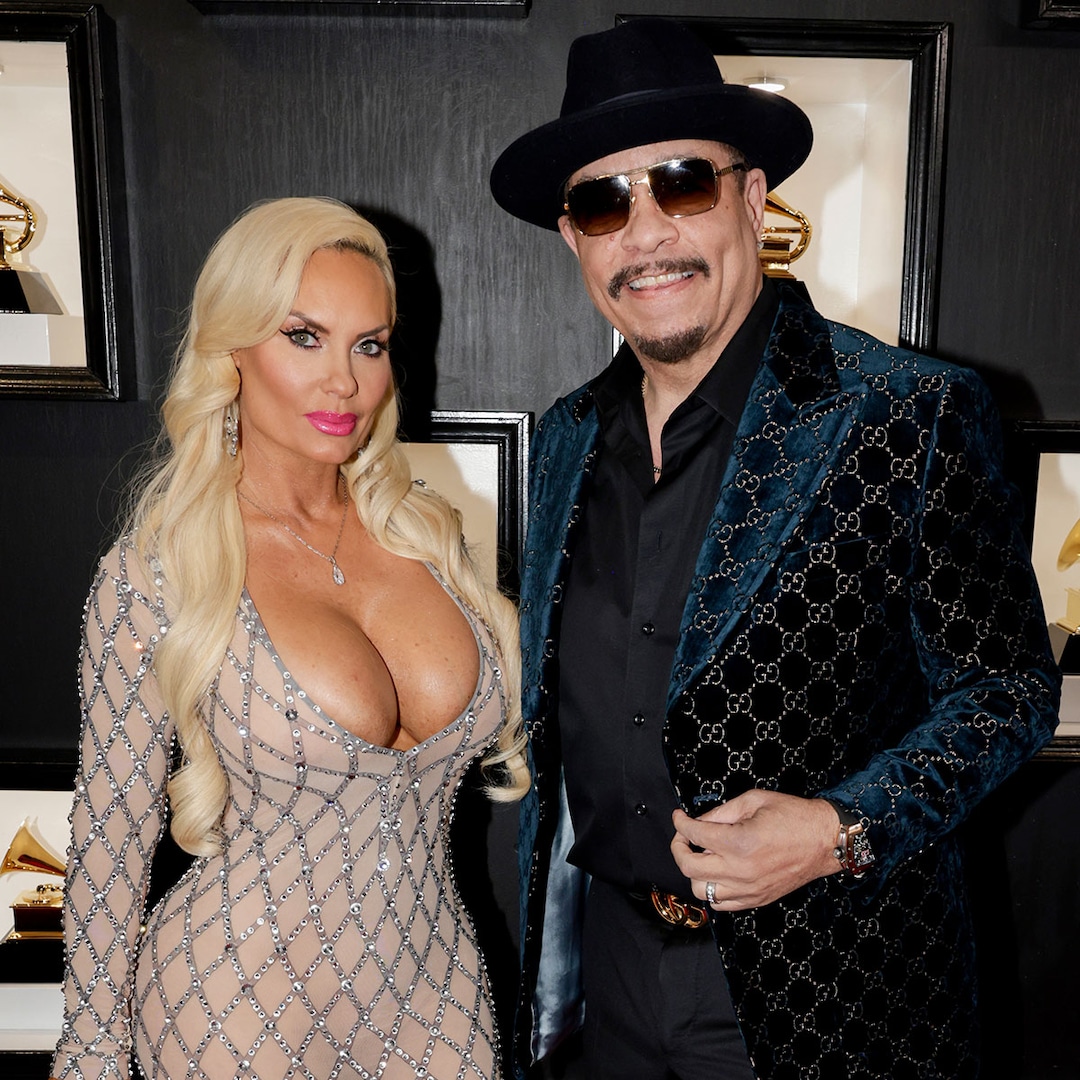
“…The Relationship Between This Father and Daughter is Forever Changed”: India Donaldson on Her Sundance-Premiering Wilderness Drama, Good One
Jan 22, 2024
Good One
India Donaldson has been ready to make her narrative feature debut for a while now, with three short films under her belt already. But it was only after the pandemic hit and she moved in with her family for a few months that she found her story around family dynamics in isolation. So she poured that inspiration into Good One, a terrific slow-burn at this year’s Sundance Film Festival (US Dramatic Competition) that follows the 17-year-old Sam (Lily Collias) on a Catskills camping trip with her dad Chris (James Le Gros) and his longtime friend Matt (Danny McCarthy). As the trio journey deeper into their hike, the pettiness between the two men escalates, leaving a quietly observant Sam with more than she’s bargained for throughout what was supposed to be a tranquil getaway.
“I wanted to write something that would be intimate in scale, but feel emotionally expansive,” says Donaldson, who, with her first feature, sleekly tangibilizes the abstract experience of walking the earth in a young woman’s shoes. “I grew up hiking, backpacking, camping. You’re in the wilderness, the great outdoors, but that can also feel claustrophobic, which is counterintuitive. So that was the origin of it.”
Below, Donaldson further discusses her ambitions with her feminist film, the challenges of shooting outdoors and the joys of working with Collias, who gives a breakthrough performance at this year’s festival. “I can’t wait to sit in a room with people and watch it,” she admits during our pre-festival chat. “I also think the humor comes through more when you’re watching it with other people.”
Filmmaker: In every family, there is a scapegoat. Everything is their fault. And there is also a good one, tasked with alleviating tensions, being mature. What’s your personal connection to the idea of being the good one?
Donaldson: In my twenties, I formed a narrative for myself about how I fit into my family structure. I don’t know if my seven siblings or my parents would agree, but as I reflected on my youth, I really felt that need to keep the peace. I was always very uncomfortable with conflict and would avoid it at all costs. And then as I got older, I started to realize that was an unhealthy way of being in the world. It actually didn’t serve me in my relationships or my professional life. So in developing this character, I was thinking about that need to form myself around the needs of others. It’s positive to be praised as good or easygoing and I certainly fed off of that kind of praise. But that can be a challenging way of asserting yourself. Certainly in coming into my own as a filmmaker, I had to push against that need to be always pleasing everyone.
Filmmaker: There is a terrific undercurrent of tension in the film, both between the two men with their snarky remarks (like when Chris says to Matt, “You have to work on your core”) and in the way Sam observes them. In the scripting phase, what’s your approach to building and maintaining tension?
Donaldson: Before I start a draft, I put a lot of time into thinking about who the characters are, coming to understand not just their backstory, but their behavioral tics, emotional wounds and anxieties that might fuel their behavior. And when I have a really clear understanding of how they all behave—and I know this feels corny to say out loud—I sort of just let them talk to each other. I write a very rough draft intuitively and find the story that way and then go back and read it. It’s certainly true for this script, but a lot of the little micro-tensions are there in that first draft. It’s the larger structure and story that I end up having to spend more time fleshing out. Also, the actors brought so much of that. The second you hear the words coming out of a wonderful actor’s mouth, there’s like 10,000 more layers of subtlety to the dynamics that weren’t in the script. That line that you called out, my memory of it is, that’s something James improvised in the moment.
Filmmaker: Oh, wow. So you left room for improvisation in general?
Donaldson: Absolutely. I like to allow for that space if that’s something that helps them. Danny McCarthy is an incredibly experienced theater actor. And I would say he was particularly loyal to the words I wrote to the point where I had to say like, “You know, it’s okay. You can mess with them a little bit.” It’s a living, breathing thing so I love to let the actors find their own words when it feels like the words that are written are not gelling. There are a few things that I’m particularly precious about language-wise, but oftentimes I like to remain open.
Filmmaker: Your silent moments are just as impressive. And Lily Collias as Sam, since a lot of her reactions are delivered in silence, soars in those moments. How did you find and work with her?
Donaldson: This is my favorite topic. We’d been looking for our Sam for some time. I was with my younger sister on a walk one afternoon. She was a senior in high school at the time and on a whim, I asked her if she knew any actors. She had been hanging out with Lily the night before. They went to the same high school, which is also the high school I went to, which is a beautiful connection. And my sister put us in touch. I felt a very immediate, instinctual connection to her, like I was sitting across from the character. But I thought I might be predisposed to feeling that connection. So she taped two scenes for us that I shared with the producers and our casting director without any context really. And Taylor Williams, our casting director called me immediately. I still can’t believe that we met in the way that we did. It feels too good to be true.
When I met her, she was only she was 17, and we did not have the budget to shoot this film with a minor because of the restrictions—it would’ve been more expensive. So we waited a year to shoot and it was absolutely worth the wait. That also gave me and Lily a year to get to know each other. She really got to know the script inside and out, let the character soak in. It really made it so much easier, allowed us to have fun and, settle into all the preparation and just shoot the movie.
On the first day of shooting, I saw how natural Lily was and how natural her dynamic with James was. And Lily and James really seemed to have a familial dynamic off-screen as well. They spent a lot of time together over the two weeks [of production]. I observed them bickering, having random conversations about life, movies and books. They just had a natural kind of friendship and chemistry that bled between the filming and off camera. I just breathed this huge sigh of gratitude.
Filmmaker: Good One feels like a microcosm of how it often feels to be a woman or girl in the world. Sam is always negotiating what she should or should not do or say, and so son. It’s a familiar experience.
Donaldson: Absolutely. What you were describing before about Lily’s character Sam [re: her silent reactions and perceptions] is sort of how I often felt, you know? Grounding [the story] in her perspective in that way is connected to that. Both as a young person and as I got older and started a professional life going my way in the world, it’s sort of how I struggled to find my voice in a moment, to assert myself or be forthright with my opinions. That’s something that comes with experience maybe. But certainly a universal feeling that I hope a lot of women will relate to.
Filmmaker: In other words, I found it to be a very feminist movie. One of the things I appreciated is that she was on her period during the hike. And she had to pause to change tampons, something male hikers don’t have to deal with. I am a woman, and I hike a fair amount. I felt seen.
Donaldson: When you’re on a backpacking trip like that, you’re carrying all your garbage with you. You know: leave no trace. You can’t leave anything in the woods. So I thought of it as this added burden that she’s carrying. There’s this emotional burden. And she carrying her heavy pack, she’s doing all this work for them, and then she’s on her period, an added chore that she has to do that they are completely unaware of. You can sort of imagine the cumulative [impact of] this, as she becomes more emotionally burdened, her pack is just getting filled with the kind of refuse she has to release at the end.
Filmmaker: What were the logistics and challenges of shooting outdoors? And was that an actual hiking trail that you were on?
Donaldson: We shot in a state park in upstate New York for part of it, and then majority of the outdoor scenes were shot on a large piece of private property near the Mohawk preserve. You didn’t have to go very far for it to feel very remote. So each location was accessible by UTVs. And so we would get in these vehicles and bring the gear, but the places we shot were almost always walkable. We scouted this location three times. The waterfall and the river that you see in the last third of the movie was such an important piece of the film for me, and how I envisioned water playing a role at the end of the film. Once we saw that, I knew we just had to figure out how to shoot on this property.
[As for challenges], there were wildfires that were affecting the air quality that had come through right before we shot. And that threatened the end of the shoot. And thunderstorms: we lost almost an entire day to a big lightning thunderstorm. And ticks! Many ticks! Also, the cinematographer and I were about 10 feet from a bear at one point when we were scouting a trail [laughs]. But I really do see the two major silver linings with having almost an entire shoot outdoors. We were able to move very quickly because we were taking advantage of mostly available lights, so we didn’t have long setup times for our scenes. It allowed us to do a lot in a day when the elements allowed.
And then whenever some weather challenge would crop up, it forced me to throw away my plan and think creatively about how to salvage the movie. And it always led to something better than what I had planned. So I have so much gratitude to the storm that came through, the rain that did make its way into the movie. It adds a mood to the sequence that it appears in and deepens the emotional dynamics that are happening.
Filmmaker: You talked about available light. How did you shoot the nighttime scenes?
Donaldson: The long nighttime scene was the most challenging part of the shoot, partly because it was such a long scene at night. When you’re camping and there’s no light pollution, there’s a blue kind of brightness to the environment, it doesn’t feel pitch black necessarily. And so I wanted the night to feel alive, not flat. And this comes through in the sound mix, but [I wanted] to feel and to be able to see some of the environment. So we shot it over two nights breaking up the scene. Summer days are long, so we would shoot start shooting at 7:00pm and go for a few hours.
Filmmaker: Glad you brought up the sound mix, because I love the way you embrace the sounds of the nature as almost a soundtrack.
Donaldson: I always thought of the nature sounds as being almost like a second score to affect the emotional layers of the story. The sound designer Eli Cohn and I talked about really embracing them. We think of the woods and nature as being quiet, but really, when you are truly isolated and there’s no city sound pollution, the natural world is so loud. When you’re in the woods, you really hear all the detail in the wind through trees, bugs, birds… The two guys’ incessant chatter takes up so much space in much of the film, it competes with this lush aural landscape. When we strip that away in the last third, the nature sounds overpower and align with Sam and her point of view.
Filmmaker: I don’t want to give away the ending of the movie, but I think it’s harmless to mention that you leave it open-ended. I love that you do that, instead of bringing the story to a firm conclusion.
Donaldson: I love endings. When I think about endings of films that I love and feel most satisfied by, they’re endings that allow me to bring my own experience to what I just watched, that allow space for interpretation. So in making this film, I wanted to allow that space for the audience. I have my own personal interpretation of what the ending means, but I don’t expect everyone to share it. What’s important to me is that a change has occurred and the dynamics have shifted and the relationship between this father and daughter is forever changed. In my experience, direct resolution is delayed in life. It comes later. It’s so rare that it happens in the moment.
Publisher: Source link
Can You Guess The Celebrity Based On A Photo Of Their Tattoos?
Hopefully, this quiz leaves a mark on you!View Entire Post › Disclaimer: This story is auto-aggregated by a computer program and has not been created or edited by filmibee.Publisher: Source link
Jan 5, 2025
Selena Gomez’s Celebrity Crushes Were Chad Michael Murray & Jesse McCartney
Selena Gomez's heart wants what it wants. And when she was younger, the Only Murders in the Building star's heart was reserved for her two major celebrity crushes: Chad Michael Murray and Jesse McCartney. In fact, she recalled a specific…
Jan 5, 2025
Alabama Barker’s $80k Christmas Haul Revealed
Meanwhile, Travis bought Alabama a pair of diamond earrings, as well as her third Cartier Love bracelet. Alabama said that Travis buying her a Cartier bangle “is kind of like a tradition now” as she explained that “every year” Travis…
Jan 4, 2025
Ice-T and Coco Celebrate Their “Sexy” 24th Marriage Anniversary
Ice-T and Coco Austin are ringing in a major milestone. The Law and Order: Special Victims Unit star and the model, who are parents to daughter Chanel Nicole, 9, not only celebrated the start of 2025 on Jan. 1 but…
Jan 4, 2025











